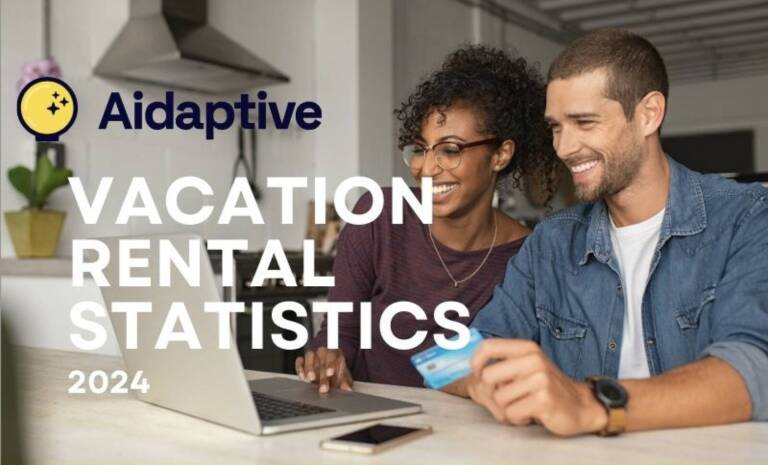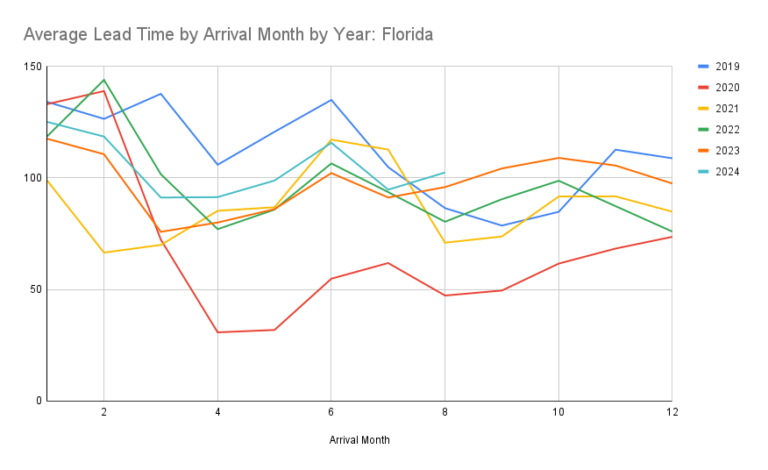It’s not the strongest or most intelligent of the species that survives but the one that’s most adaptable to change.
– Charles Darwin
In his groundbreaking work “On the Origin of Species,” Charles Darwin introduced the world to the concept of natural selection. He famously asserted that it’s not the strongest or most intelligent of the species that survives but rather the one that’s most adaptable to change. This fundamental principle of evolution has transcended biology and found resonance in various aspects of life, including the business world. Today, as we stand on the precipice of a technological revolution, adaptability remains paramount. However, the driving force behind this adaptability is not just human ingenuity but also the evolution of technology, particularly Artificial Intelligence (AI).
The Darwinian Philosophy
Charles Darwin’s theory of evolution by natural selection suggests that species evolve over time through a process where individuals with advantageous traits are more likely to survive and reproduce. This leads to the gradual development of new species better adapted to their environments. The key takeaway is that adaptability to changing circumstances is a critical factor for survival and success.
The Age of AI
Business, much like the natural world, is subject to the forces of evolution. Companies must adapt to shifts in market dynamics, consumer preferences, and technological advancements to thrive in the competitive landscape. This Darwinian philosophy in business can be seen in the rise and fall of industry giants. Firms that have successfully adapted to change, embraced innovation, and evolved their strategies have flourished, while those resistant to change have often faced decline or extinction.
One of the most significant technological advancements shaping business adaptability is Artificial Intelligence (AI). More precisely Adaptive AI systems. The analyst firm Gartner, listed Adaptive AI as one of the the top technological trends in a recent report:
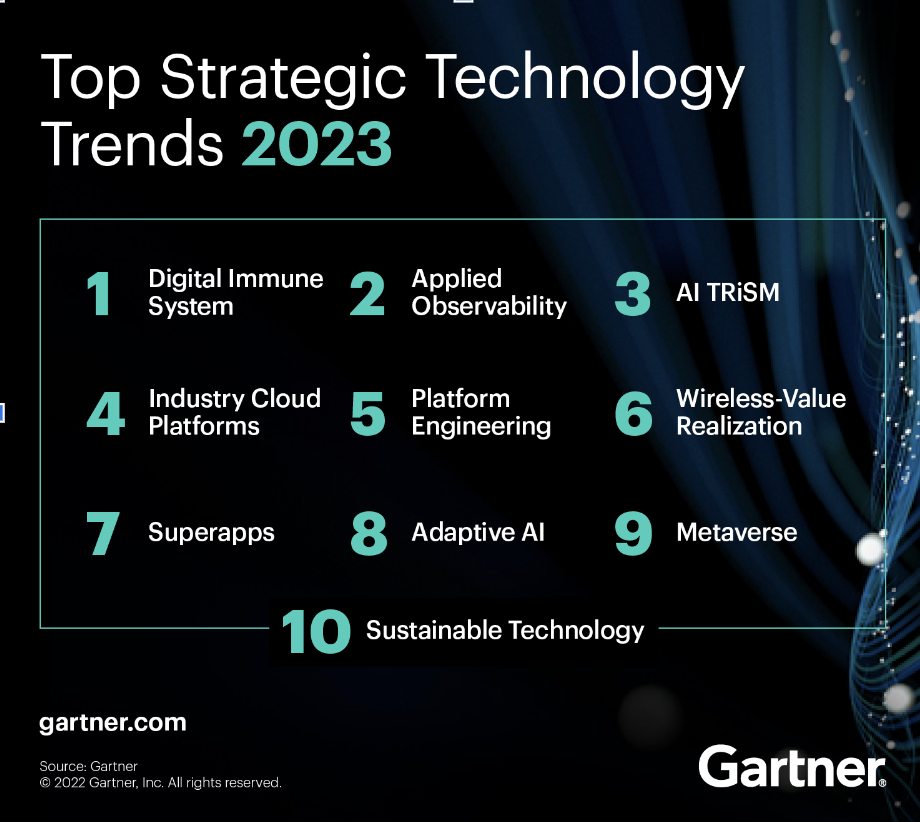
What is Adaptive AI?
Adaptive AI is an innovative AI system designed to be flexible, resilient, and capable of self-adjustment in response to changing circumstances or unexpected challenges. It embodies the essence of Darwin’s wisdom by adapting and evolving in real-time.
The analyst firm defines Adaptive AI as 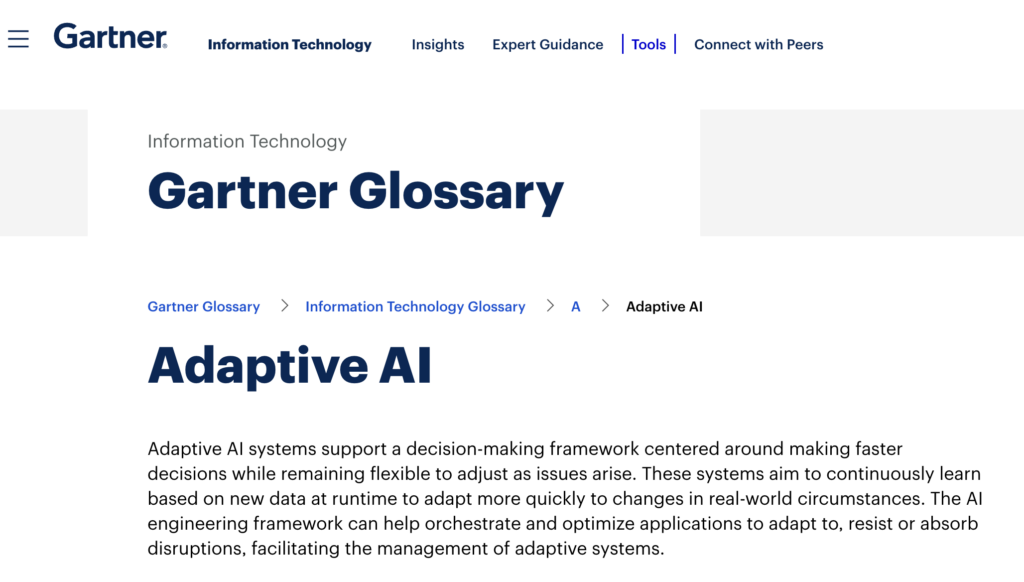
Unlike traditional AI systems, which are typically static and rely on pre-defined rules or models, adaptive AI systems have the ability to modify their behavior and adapt their decision-making processes on the fly.
Key characteristics of Adaptive AI include:
- Continuous Learning: Adaptive AI systems can continuously learn from new data and experiences, allowing them to improve and refine their performance over time.
- Real-time Adaptation: These systems can adjust their strategies, models, or algorithms in real-time as they encounter new situations or receive updated information.
- Autonomy: Adaptive AI systems often exhibit a degree of autonomy, enabling them to make decisions independently without human intervention.
- Resilience: They are designed to be robust and resilient in the face of uncertainties, changes, and disruptions, making them suitable for dynamic and unpredictable environments.
- Self-Optimization: These systems aim to optimize their own performance and adapt to maximize their effectiveness in various tasks or domains.
How Adaptive AI Works:
- Adaptive AI systems utilize advanced techniques, including machine learning, deep learning, and reinforcement learning, to continuously analyze and learn from new data. They often employ predictive models to anticipate future scenarios and adapt their actions accordingly.
- These systems may use feedback loops to update their models and strategies based on interactions with the environment or users. The feedback loop allows them to refine their decision-making processes over time.
- Adaptive AI can be integrated into various applications and platforms, where it assesses data, identifies patterns, and dynamically adjusts its behavior to optimize outcomes. For example, in e-commerce, it can analyze user behavior to recommend products tailored to individual preferences.
Why does Adaptive AI matter to your business?
“Flexibility and adaptability are now vital, as many businesses have learned during recent crises,” says Gartner Distinguished VP Analyst, Erick Brethenoux. “Adaptive AI systems aim to continuously retrain models or apply other mechanisms to adapt and learn within runtime and development environments — making them more adaptive and resilient to change.”
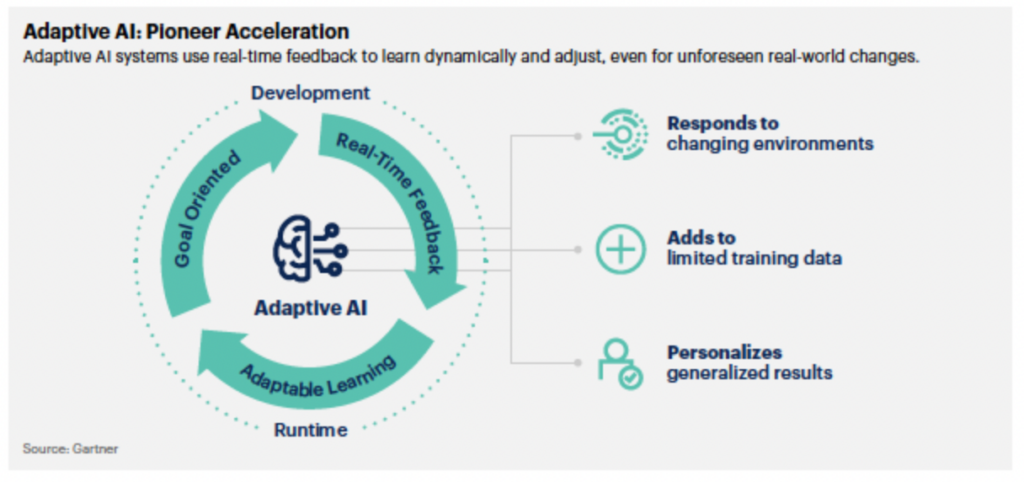 Aidaptive built the world’s first Adaptive AI system for digital commerce. Aidaptive’s platform leverages large-scale artificial intelligence, machine learning, and predictive analytics models and sits above your ever-evolving digital commerce technology stack to find patterns in your own data, creating predictive and prescriptive insights for your data teams and dynamically personalizing and optimizing every shopper journey for your e-commerce and marketing teams.
Aidaptive built the world’s first Adaptive AI system for digital commerce. Aidaptive’s platform leverages large-scale artificial intelligence, machine learning, and predictive analytics models and sits above your ever-evolving digital commerce technology stack to find patterns in your own data, creating predictive and prescriptive insights for your data teams and dynamically personalizing and optimizing every shopper journey for your e-commerce and marketing teams.
Aidaptive unique models also continuously learn and adjust on autopilot to maximize end results.
For your teams, this means hundreds of hours saved with no more fragmented customer journey data, manual workflows, or guesswork. And for your business, it exponentially improves conversion rates, customer satisfaction, and revenue. All automatically.
